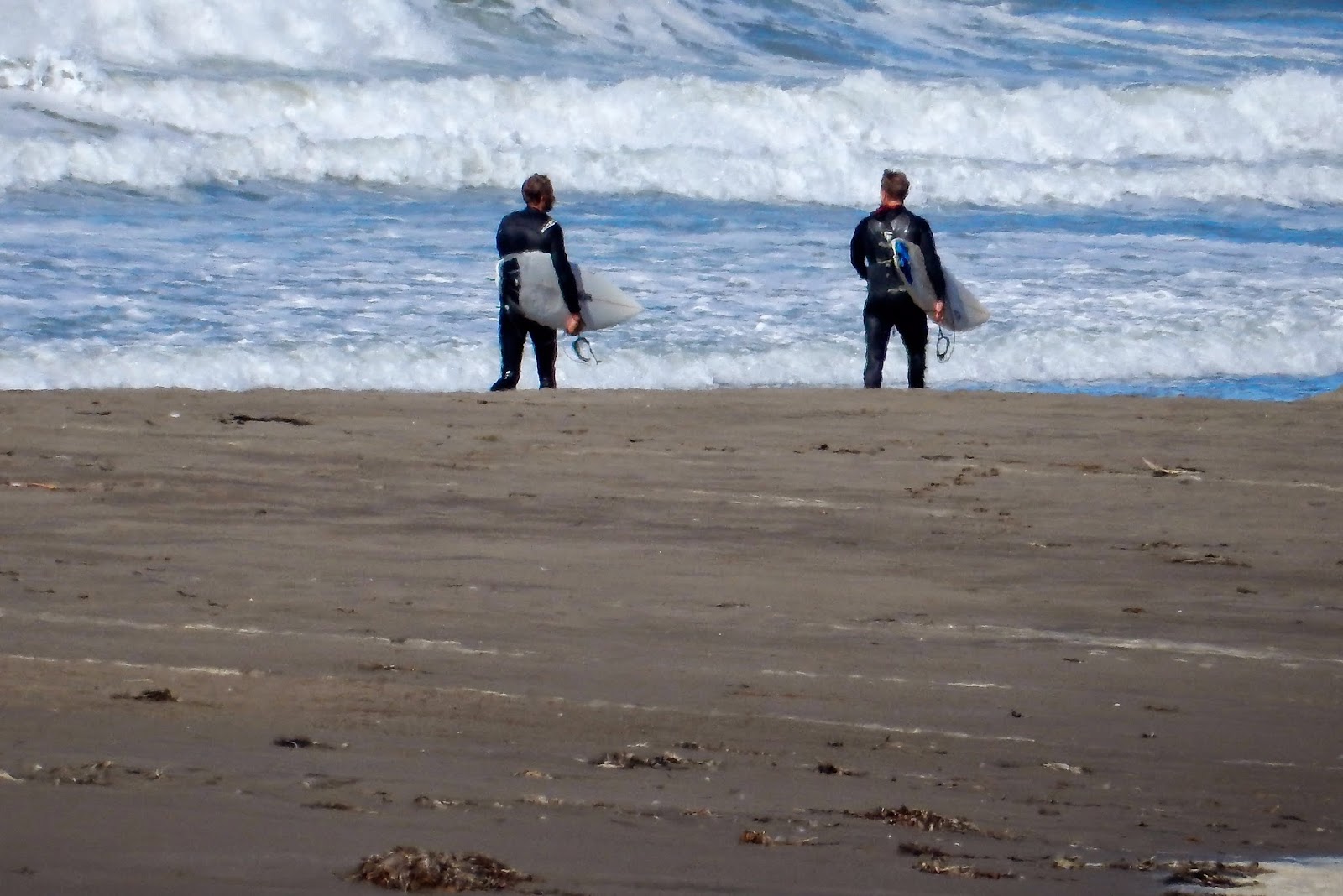ASPIRING OILS
Not being clever enough to know why, I've noticed that a long lens capture of people against the sea takes on what I call an "oil painting" quality or texture.
A pixelation occurs that creates an affect as though it had been rendered by a paint brush.
It is no doubt a technical faux pas, but I'm fond of it because it indulges my desire to oil paint. At least it permits a "composition" to aspire to an oil.
NO VACCINE FOR PTSD
Killing the Messenger
Killing the Messenger
Before you read on, please note this is a bit like a personal confession or a public therapy.
The film Kill the Messenger strikes a nerve and activates a strain of post traumatic stress disorder (PTSD).
The story is true and it points fingers at dishonorable behavior in a dark chapter of recent American history. San Jose reporter Gary Webb put together pieces that detailed how the CIA flooded South Central LA, and other American cities, with crack cocaine to fund the contra war in Nicaragua.
The Reagan administration couldn't get Congressional funding to fight the Sandinistas so they sold weapons and drugs to raise the money. Remember Colonel Oliver North and that saga?
In Dark Alliance, Webb broke the story, then the CIA fought back and broke Webb.
It wasn't until later the true implication of Webb's reporting was confirmed. Sadly Webb did not live to see full vindication. He was dead from two bullets to the head, supposedly a suicide. Think about that for a moment.
This film directed by Michael Cuesta, based on Webb's book and starring Jeremy Renner hits close to home. Webb's reporting was an active element during my own investigative and documentary work. It was the source of professional conversation and workshops.
After first playing the Webb revelations other media like the LA Times, Washington Post, New York Times, ABC, CBS, NBC, CNN backed away and/or turned on Webb. Media "elites" were played and manipulated by CIA spinners and deceit. The film sets the record straight and reveals duplicitous and cowardly behavior. Webb's reports and the reaction they created was something we thought a lot about back then. It is good the truth is seeing the light.
After first playing the Webb revelations other media like the LA Times, Washington Post, New York Times, ABC, CBS, NBC, CNN backed away and/or turned on Webb. Media "elites" were played and manipulated by CIA spinners and deceit. The film sets the record straight and reveals duplicitous and cowardly behavior. Webb's reports and the reaction they created was something we thought a lot about back then. It is good the truth is seeing the light.
I thought about it when I was in Nicaragua during the Contra War. But like other journalism it becomes just another episode, another old story, getting colder, being filed away in the memory bin. But Renner's portrayal awakened old memories. It is fair so called "distinguished" media enterprises are shown for their role in trashing Webb and his story. Some of the principals may even feel a sense of shame. Beyond that however, is the visceral response to the vivid depiction of the grueling challenge and emotional drain of balancing investigative reporting with family and their safety. That layer of the film hit me like a gut punch.
What I write here now may have no significance save to a precious few, and I hope that few, my wife, my daughters my close colleagues and their families can take a measure of why we were the way we were-our behavior, our pre-occupation, our fears. Those who put self at risk, who endured harrowing and obsessive hours, manic months, giving up pieces of lives with loved ones, did so with a belief that what we were about meant something and was important.
We reasoned once we published or broadcast information that a legion would then care, would believe and that right or justice would ensue. The reality is something quite different.
Killing the Messenger plays it true. Sometimes it's like the guy who gets knocked down, and kicked in the ribs and then kicked in the face. The pursuit of an approximation of truth, of facts, of the story doesn't have a happy ending. The truth of that as revealed in the Renner film woke up old pain, heartache and self reproach.
As tears dried I felt a sense of grace, a gratitude for my family who braced and supported me and for the good fortune of having emerged from that life to something with hope and joy. Man, how easy it would have been to slide into deep cynicism.
Ben, my late friend, producer and partner in many Quixotic adventures used to say, "It's like hitting yourself in the head with a hammer. It feels good when you stop!" We were able to stop. Some of our efforts produced change, but human kind is always up to the same old stuff and lot of what investigative reporters do has only passing effect. You learn to live with it. Some victories are short. Some never come. Webb didn't get the advantage that some of us did- to live longer lives and to take that, even if it means living with ghosts. Kill the Messenger rattles old graves.
See you down the trail.





It sounds like an incredible movie, as well as an incredible experience you went through. Too bad he didn't live to see his vindication.
ReplyDeleteFrom the journalists I met in Vietnam to what I read about you guys, it strikes me that you folk are often front line, but without guns. You have my admiration.
ReplyDeleteThe photos don't capture stop-action, but rather a small span of time, enough to record a partial second of motion instead of isolated droplets and frozen waveforms --much like reading whole words instead of individual letters. This is the kind of model that makes a painting come alive.
ReplyDelete